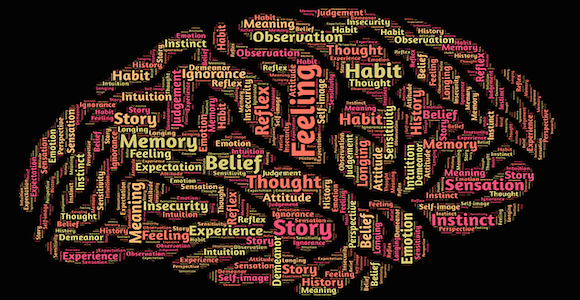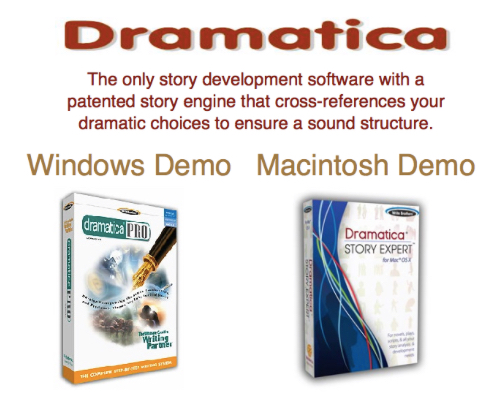
Excerpted from the Book “Dramatica Unplugged“
By Melanie Anne Phillips, Co-creator of Dramatica
So a tale is a simple linear path that the author promotes as being either a good or bad one to take, depending on the outcome. There’s a certain amount of power in that. It wouldn’t take our early storyteller long to realize that he didn’t have to limit himself to relating events that actually happened. Rather, he might carry things a step farther and create a fictional tale to illustrate the benefits or dangers of following a particular course.
That is the concept behind Fairy Tales and Cautionary Tales – to encourage certain behaviors and inhibit other behaviors based on the author’s belief as to the most efficacious courses of action in life.
But what kind of power could you get as an author if you were able to not merely say, “This conclusion is true for this particular case,” but rather “This conclusion is true for all such similar cases”?
In other words, if you begin “here,” then no matter what path you might take from that given starting point, it wouldn’t be as good (or as bad) as the one I’m promoting. Now, rather than saying that the approach you have described is simply good or bad in and of itself, you are suggesting that of all the approaches that might have been taken, yours is the best (or worst) way to go.
Now that has a lot more power to it because you are telling everyone, “If you find yourself in this situation, exclude any other paths; take only this one,” or, “If you find yourself in this situation, no matter what you do, don’t do this!”
That kind of statement has a lot more power to manipulate an audience. But, because you’ve only shown the one path (even though you are saying it is better than any others) you are making a blanket statement.
An audience simply won’t sit still for a blanket statement. They’ll cry, “Foul!” They will at least question you. So, if our caveman sitting around the fire say, “Hey, this is the best of all possible paths,” the audience is going to say , “What about this other case? What if we tried this, this or this?”
If the author was able to successfully argue his case he would compare all the solutions the audience might suggest to the one he is touting and conclusively show that the promoted path is clearly the best (or worst). Or, a solution might be suggested that proves better than the author’s, in which case his blanket statement loses all credibility.
In a nutshell, for every rebuttal the audience voices, the author can attempt to counter the rebuttal until he has proven his case. Now, he wont’ have to argue every conceivable alternative solution – just the ones the audience brings up. And if he is successful, he’ll eventually exhaust their suggestions or simply tire them out to the point they are willing to accept his conclusions.
But the moment you record a story as a song ballad, a stage play, or a motion picture (for example), then the original author is no longer there to counter any rebuttals the audience might have to his blanket statement.
So if someone in the audience thinks of a potential way to resolve the problem and you haven’t addressed it in your blanket statement, they will feel there is a hole in your argument and that you haven’t made your case.
Therefore, in a recorded art form, you need to include all the other reasonable approaches that might be tried in order to “sell” your approach as the best or the worst. You need to show how each alternative is not as good (or as bad) as the one you are promoting thereby proving that your blanket statement is correct.
In order to do this, you must anticipate all the other ways the audience might consider solving the problem in question. In effect, you have include all the ways anyone might think of solving that problem. Essentially, you have to include all the ways any human mind might go about solving that problem. In so doing, you create a model of the mind’s problem-solving process: the Story Mind.
Now, no caveman ever sat down by a fire and said to himself, “I’m going to create an analogy to the mind’s problem-solving processes.” Yet in the process of successfully telling a story in a recorded art form (thereby showing that a particular solution is better than all other potential ones) the structure of the story becomes a model of psychology as an accidental byproduct.
Once this is understood, you can psychoanalyze your story. And you find that everything that is in the human mind is represented in some tangible form in a story’s structure.
That’s what Dramatica is all about. Once we had that Rosetta Stone, we set ourselves to documenting the psychology of story structure. We developed a model of this structure and described it in our book, Dramatica: A New Theory of Story. While that book is detailed and complete, it is also written like a scientific paper. For decades folks have been clamoring for less daunting guide to the theory – something that covers all the key points but in a more conversational tone. Hence, this book. Better late than never, eh?
Also from Melanie Anne Phillips…


 There are two principal forms of story structure: the tale and the story.
There are two principal forms of story structure: the tale and the story.